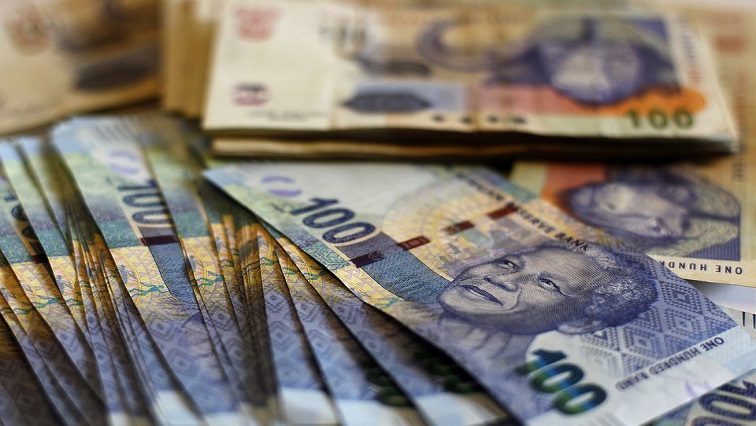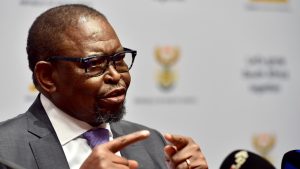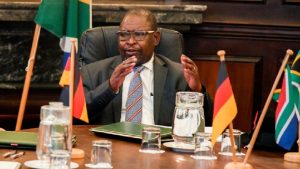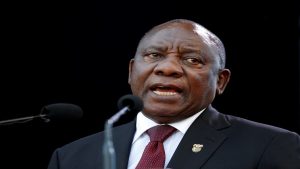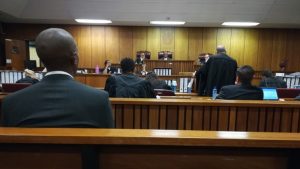The Medium Term Budget Policy Statement (MTBPS) will give South Africans an idea of the government’s revenue expectations and its planned expenditure over the next three years.
There are competing imperatives that the government has to weigh on how it spends.
State-Owned-Enterprises continue to need support, there are growing calls for the government to implement a Basic Income Grant and, very topical at the moment, is how much the government can afford to pay public service workers.
Just like a household, the government has a finite budget, it needs to decide on what prerogatives it’s going to spend money on and how much.
However, with relatively high debt levels, the National Treasury has been looking to cut expenditure and reprioritize spending with its limited resources. For the 2022/2023 fiscal year, they penciled in a decline in non-interest spending of around 0.5%.
Senior economist at ABSA, Peter Worthington says, “That’s predicated on a few things which we know are unlikely. For example, it’s predicated on the termination of the SRD (Social Relief of Distress) Grant at the end of this fiscal year; it’s predicated on a series of 0% wage increases for public sector workers which we now know we’ve department somewhat from and it’s not clear that there are big areas of expenditure currently that the government can easily cut without having an impact on frontline delivery.”
Finance Minister Enoch Godongwana is expected to make a pronouncement on the much-anticipated issue of the Basic Income Grant.
Some believe that the Social Relief of Distress Grant, which was introduced at the height of the COVID-19 pandemic, could become a permanent feature.
A senior economist at Standard Bank, Elna Moolman says, “So our expectation remains that the COVID relief of distress grant will become a permanent feature. In the MTBPS, they won’t necessarily provide for this. In other words, you won’t necessarily see a line item that says COVID relief of distress continues indefinitely or throughout the forecast period. I think what the government will do is to just have a very large unallocated reserve.”
Limited fiscal position
However, some argue that given the government’s limited fiscal position, it’s imprudent to create a greater social dependency and that stimulating economic growth, which leads to job creation, should be the main focus.
An economics lecturer at Wits University, Lumkile Mondi says, “I mean I understand the view around the safety net, but we must not start something which is going to continue destroying this country, given that there isn’t much to go around anyway, because there’s no growth.”
Godongwana has recently indicated that detailed announcements will be made about Eskom’s debt come Wednesday.
The markets are expecting that the government will take on between R150 to R250 billion of Eskom’s debt, giving it some financial breathing room and enabling it to borrow further to invest in improving capacity. But the government is expected to make longer-term decisions about SOEs.
Moolman says, “I think ultimately the long-term plan is to either reform these SOEs so that they’re financially viable on their own or get rid of them if there isn’t a very solid case to have some of these SOEs.”
Current revenues appear healthy but there’s a warning that they may not be sustained at these levels.
Worthington says, “I think the rehabilitation at SARS is actually showing up quite nicely, I think it’s one of the reasons why personal income receipts are holding up really quite well in a low-growth environment; there may be more dividends to come from that and if we’re lucky maybe commodity prices will hold up high for longer and we’ll continue to enjoy transfers from mining companies.”
Tax revenue resources
The government could be enjoying greater tax revenue resources if it did more to help stimulate an environment that’s conducive to economic growth, but even as there are moves to push for the private sector to invest in infrastructure and structural reforms in the energy, rail and other sectors, there’s said to be a lack of business confidence to invest, as worries around security and the rule of law prevail.
Mondi says, “A lot of efforts that our President has been engaged in whether it’s in the energy sector and other areas are being stymied by the inability of the state to bring law and order and to protect these investors and households who are keen to put South Africa first and therefore get us going forward.”
If the Finance Minister announces that the government will take on a big chunk of Eskom’s debt, it will be good for Eskom, but, ultimately, it will mean that the regular taxpayer, you and I, will be liable for that debt.
This will likely mean the government paying more in debt service costs, which will take away from spending on the African National Congress (ANC) government’s mandated priorities.
VIDEO: Medium-Term Budget Policy Statement preview with Tshepo Mongoai:


